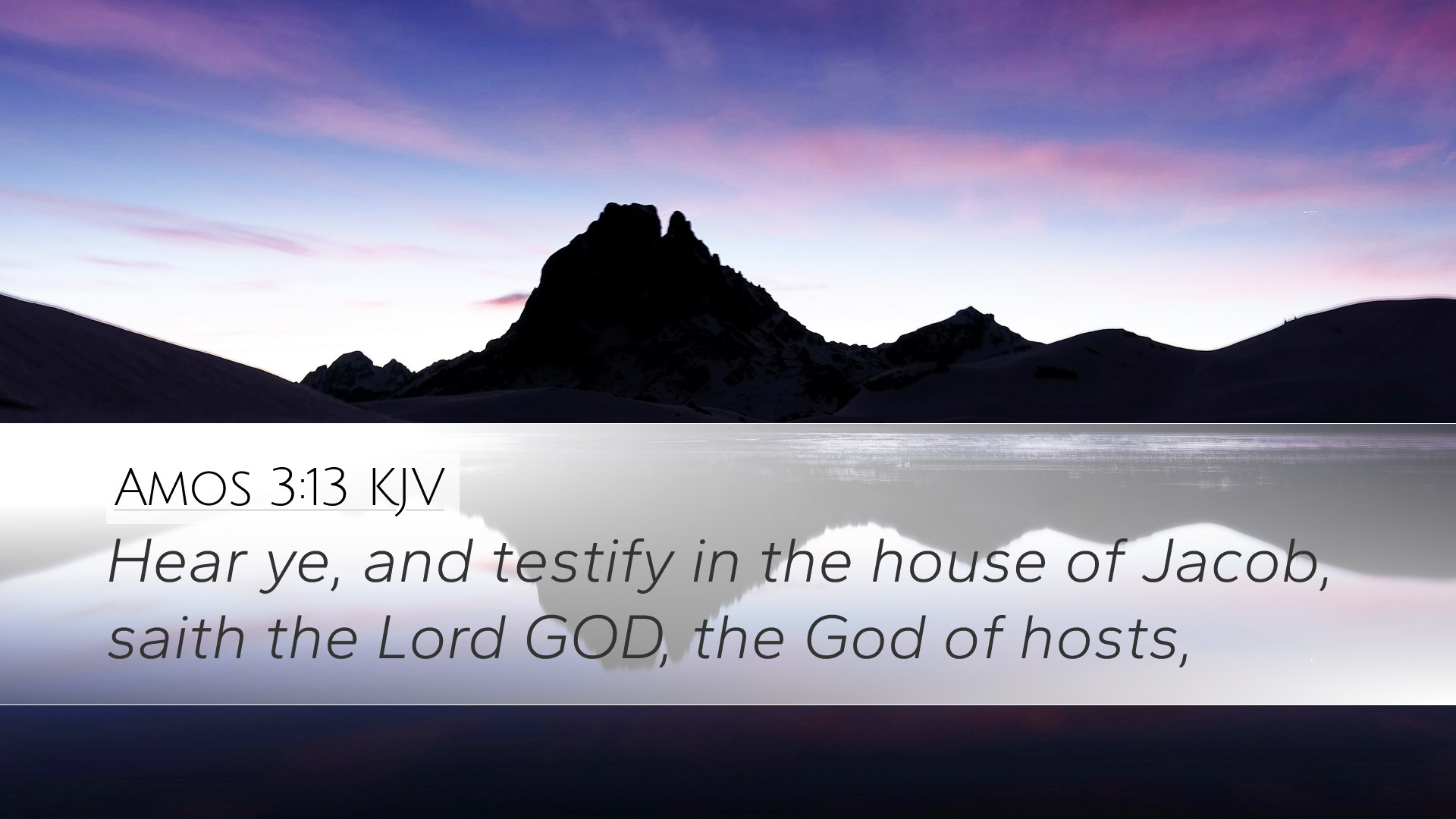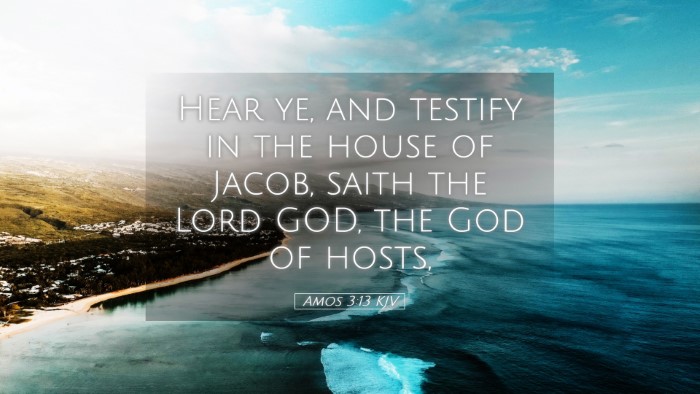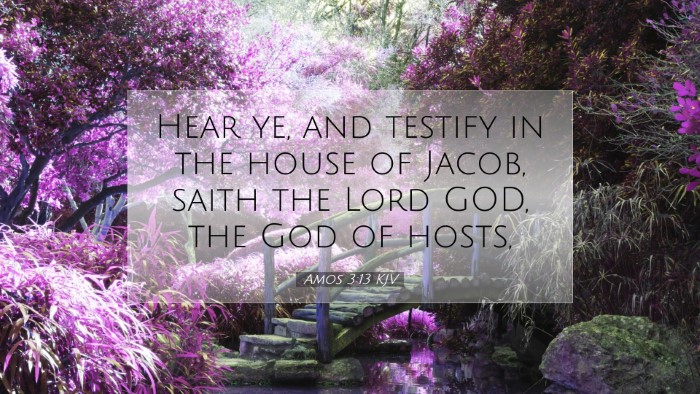Old Testament
Genesis Exodus Leviticus Numbers Deuteronomy Joshua Judges Ruth 1 Samuel 2 Samuel 1 Kings 2 Kings 1 Chronicles 2 Chronicles Ezra Nehemiah Esther Job Psalms Proverbs Ecclesiastes Song of Solomon Isaiah Jeremiah Lamentations Ezekiel Daniel Hosea Joel Amos Obadiah Jonah Micah Nahum Habakkuk Zephaniah Haggai Zechariah MalachiAmos 3:13
Amos 3:13 KJV
Hear ye, and testify in the house of Jacob, saith the Lord GOD, the God of hosts,
Amos 3:13 Bible Commentary
Amos 3:13 Commentary
"Hear, and testify against the house of Jacob, saith the Lord GOD, the God of hosts."
Introduction
The book of Amos presents a poignant call to repentance and a warning against the complacency of Israel. In this context, Amos 3:13 serves as a significant pronouncement of God's authority and a call for accountability. The verse invites believers to engage deeply with the divine message and understand the weight of God's expectations from His covenant people.
The Authority of God
Matthew Henry emphasizes that God’s demand to "hear" signifies His sovereignty and the need for attention to divine revelation. The phrase “saith the Lord GOD” underlines that this is a proclamation from the Almighty, suggesting an urgent need for reflection and heedfulness before the impending judgment.
Albert Barnes notes that the phrase "the God of hosts" reveals God’s omnipotence, indicating that He commands both the heavenly and earthly hosts. This title serves to instill fear and respect, as it emphasizes His authority over all creation, both seen and unseen.
The Call to Witness
In this verse, God commands His prophet to serve as a witness against the house of Jacob. Adam Clarke elaborates that this instruction signifies the seriousness of the message Amos is to deliver. It illustrates the role of the prophet not merely as a speaker but as one who testifies and brings forth evidence against unfaithfulness.
- Accountability: The use of the verb "testify" implies a legal context, where Israel must account for their actions.
- Witnessing against Sin: The call to testify suggests that the people have entered into a covenant relationship that they are failing to uphold, and Amos is charging them with this failure.
The House of Jacob
The "house of Jacob" commonly refers to the entirety of Israel, and by addressing them in this manner, God underscores their corporate identity and responsibility. Matthew Henry suggests that Jacob, being the patriarch, symbolizes both the physical and spiritual heritage that has been entrusted to the Israelites. This identification is a reminder of their chosen status and the grave consequences of turning away from God's commandments.
Albert Barnes adds that Jacob being remembered in this context evokes the history of God's faithfulness to His people throughout the generations, enhancing the gravity of their current situation, which involves neglecting that very faithfulness.
The Implications of Hearing and Testifying
The command to “hear” is not merely auditory but involves an active engagement with God's word and an introspective response. Adam Clarke stresses the importance of listening not only to the prophetic voice but also to the implications of that message in daily living.
This call encompasses a twofold aspect:
- Listening for Understanding: In order to testify rightly, one must first understand what is being conveyed by God.
- Responding with Action: True understanding leads to action—an obligation to align life with what has been revealed.
The Relevance for Today's Believers
For pastors, students, theologians, and scholars, this verse serves as a vital reminder of the accountability that lies within the Christian community. Matthew Henry posits that there is a continuous need for the church to "hear" the prophetic voice today, as the underlying truth remains—God calls His people to holiness.
The analogous implications for today’s believers involve:
- Spiritual Vigilance: Just as Israel was admonished to heed God's words, so must contemporary believers engage actively in their faith.
- Collective Responsibility: Much like ancient Israel, the church is called to a communal understanding of God's intentions, urging believers to hold one another accountable to living righteously.
Conclusion
Amos 3:13 epitomizes a powerful declaration from God, emphasizing His sovereign authority and the necessity for the people of Israel, and by extension, all believers, to be vigilant and attentive to His word. The juxtaposition of hearing and testifying underscores the active role that believers must take in responding to God’s message and living out their covenant relationship with Him. As we engage with this text, let it challenge us to reflect upon our own spiritual lives, demanding a response that is both faithful and fruitful in service to our God.


